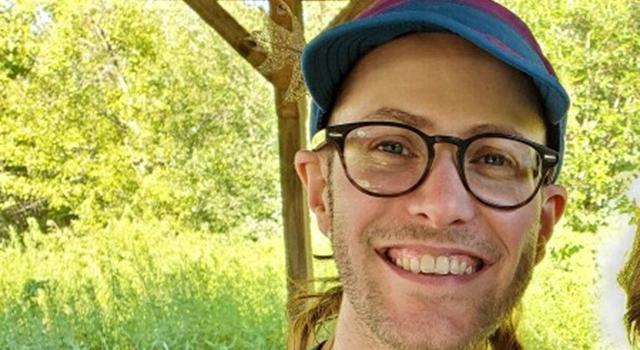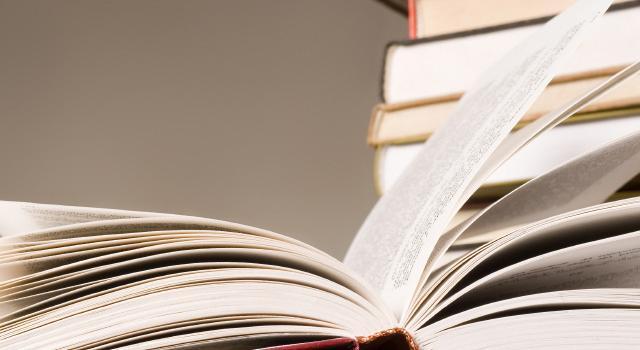Jewish Studies
In 1973, a group of students helped to organize the nation's first college course on the Holocaust, "Thinking the Unthinkable."
One alumnus of that course, co-organizer Aaron Lansky, went on to found the National Yiddish Book Center, now the world's largest collection of Yiddish books and located adjacent to the Hampshire campus. Students of Jewish Studies may focus on a specific aspect of Jewish culture, religion, or history, or explore the unique position of Jews within any number of academic interests including ethnic studies, urban studies, American studies, or art history.
Recent Hampshire students have investigated these links through academic research, creative writing, and photography.
Student Project Titles
- The Magic Mirror: Avrom Goldfaden's 'Di Kishefmakherin' and the Creation of a Yiddish Literary Canon
- Authenticity, Religion, and Ethnic Identity: Contemporary Soviet Jewish Immigrant Writers in North America
- The Body and Mind of the Assimilated German-Jew: An Analysis of selected 19th Century and Fin-de-siècle of Language, Physiognomy, and Creativity
- Keeping Kosher in Georgia: Flannery O'Connor's Encounter with Martin Buber
- Pharaohs & Maccabees: Racism, Whiteness, and American Jewish Identity
Sample First-Year Course
The Rise of Secular Jewish Culture
Jewishness has always involved more than religion. Jewish identity, even in the pre-modern world, was expressed through language, work, music, food, and other cultural behaviors. Modernity brought with it even more possibilities, and a sense of radically different political, cultural, and artistic Jewish identities beyond religion began to emerge. This interdisciplinary course draws upon history, literature, political philosophy, and sociology in tracing the rise of a pluralistic, multifaceted modern Jewish culture in Europe and the U.S. between the seventeenth century and the Second World War. We begin with Spinoza, the most significant "heretical" Jewish thinker in the seventeenth century, and continue through the European Enlightenment, the rise of modern Jewish nationalist movements, and the emergence of secular Yiddish and Hebrew literature. Finally, we will address the crisis of Jewish modernity provoked by the Holocaust, and briefly survey secular Jewish identities today.
Sample Courses at Hampshire
- Antisemitism
- Contemporary Jewish American Fiction
- Demons, Tricksters, and Stand-Up Comics in the Jewish Imagination
- The Holocaust in America
- Imagining the Other: Blacks, Indians, and Jews in America
- Israel and Palestine: The Clash of Nationalisms
- The Literature of Religious Awakening
- Living on: Responses to the Holocaust
- Radicals and Reformers: Literature and Culture of American Jewish Activism
- Religious Fundamentalism
- Shoah: The Holocaust as History
- Theorizing Religion
- Visual Culture and the Holocaust
- Yiddish Literature and Culture
Through the Consortium
- History of Israel (AC)
- Holocaust Literature (SC)
- Holy Feast, Holy Fast: Sacred Food and Eating in Judaism (MHC)
- Insiders/Outsiders: Jews and Judaism in Modern Europe (SC)
- Intro to Jewish Mysticism (MHC)
- Jewish Labor Movements in the United States (UMass)
- Life Stories by Latin American Jewish Writers (SC)
- Staging the Jew (SC)
- Topics in Contemporary Theology (MHC)
Facilities and Resources
National Yiddish Book Center
Located on the Hampshire campus, the National Yiddish Book Center creates innovative programs to inspire readers and students who want to learn more about Jewish history and culture. The center's internship program has given dozens of students a valuable foundation for notable careers in the fields of Jewish Studies and education. Yiddish book scholarships have supported undergraduates, graduates, readers and teachers in their ongoing study of Yiddish literature.
The center also offers events and conferences for college students, focusing on Jewish literature and culture. In the past few years, noted scholars and writers have visited Hampshire, including American literature scholar Eric Sundquist, Yiddish literature scholar Jeffrey Shandler, and novelist and essayist E.L. Doctorow, giving a lecture entitled "Religion and Literature."
Jewish Life
Jewish life at the Five Colleges is diverse. The Hillel Foundation operates on three campuses (Amherst College, Smith College, and the University of Massachusetts). At Hampshire, (as well as at Mount Holyoke), students have organized an independent Jewish Students Union. There is a kosher kitchen on campus that is organized and maintained by students who choose to keep kosher, as well as kosher facilities on other campuses.
Coordinator for Religious Identity and Political Intersections
At Hampshire, the coordinator for religious identity and political intersections works with the campus as a whole around discourse and dialogue working to bring opposing viewpoints together in productive conversation, increase understanding and education around the intersections of religion and politics. The coordinator also advises Jewish student groups and works with them around programming, holidays, and more.
Prague Short-Term Field Study Program
Prague and Krakow: City, History, Text is a short-term field study course in the cities of Prague and Kraków. This course, examining the East Central European experience, is devoted not only to "what happened," but in equal measure to how people made sense of it: how they shaped their own destinies or were shaped by destinies beyond their control. Although the course's focus is on the realms of culture and politics of the last century, the course also explores--in particular through outings in these cities known for their art and architecture of the Middle Ages, Renaissance, and Baroque--the older history of these regions, and the way that subsequent generations viewed or appropriated the past.



